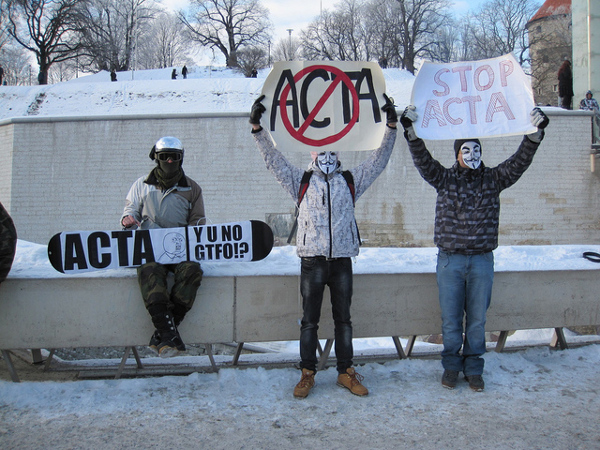European Parliament voted against ACTA

The European Parliament today rejected the Anti-Counterfeiting Trade Agreement (ACTA) , which now therefore cannot become a law in the European Union. This was the first time that parliament used its right to reject an international trade agreement. 478 members of the European Parliament voted against the ACTA , 39 - for, 165 abstained.
The ACTA agreement, among other things, would allow customs officials to inspect laptops, players and phones for storing files in them related to violation of copyright law.
Rapporteur David Martin said he was very pleased that Parliament followed his recommendation to reject the ACTA , and reiterated his concern that the proposed treaty was too vague, open to misinterpretation and therefore could threaten the freedom of citizens. However, he also stressed the need to find alternative ways to protect intellectual property in the European Union, which is the “raw material of the EU economy”.
')
The main supporter of ACTA in parliament, Christopher Fjelner, asked the parliament to postpone it before the vote, until the European Court of Justice makes a decision on whether ACTA is compatible with EU treaties. However, most members of the European Parliament rejected this request and voted against the ACTA .
Before the vote, thousands of EU citizens called on Parliament to reject ACTA , arranging street demonstrations, sending emails to deputies and calling their offices. The parliament also received a petition signed by 2.8 million citizens around the world calling for the rejection of the treaty.
The ACTA agreement was negotiated between the EU and its member states, the USA, Australia, Canada, Japan, Mexico, Morocco, New Zealand, Singapore, South Korea and Switzerland to improve enforcement of anti-counterfeiting legislation at the international level. Today’s vote means that neither the EU nor its individual member states will join the agreement.
Source: https://habr.com/ru/post/147140/
All Articles